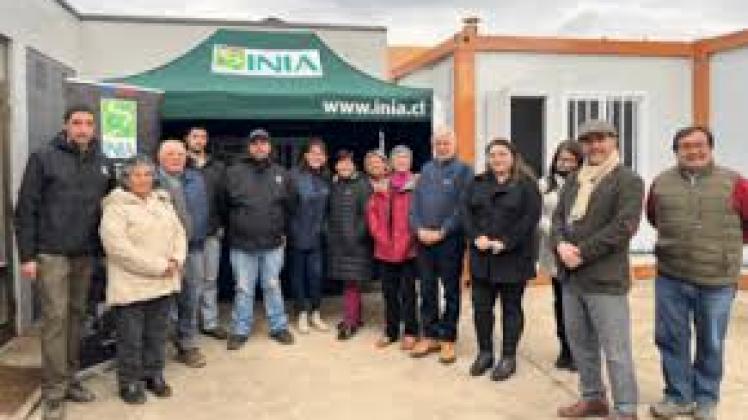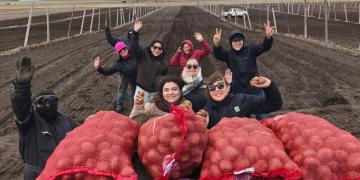Chile: Inia advances with certified seed potato production in Kampenaike
This is a sustained effort: "We seek to reduce dependence on seeds from the north of the country and strengthen regional production capacity with varieties adapted to the extreme climatic conditions of the southern hemisphere."

In the heart of the Magellanic pampas, science and agriculture are once again colliding to strengthen the region’s productive sovereignty. Within the framework of the project "Transfer, Application of Techniques, and Processing for Sustainable Potato Production among Farmers in Magallanes," INIA Kampenaike researcher Carolla Martínez is leading an initiative that has transformed local potato production over the past ten years, thanks to financial support from the Magallanes Regional Government.
The project has enabled progress in the production of certified genetic material, and 5 hectares of high-quality seeds were planted for next season’s delivery to more than 430 small and medium-sized farmers in the region’s four provinces.
To review the results and work carried out over the past 10 years at the INIA Kampenaike experimental center, 60 kilometers northwest of Punta Arenas, the Regional Secretary of Agriculture, Irene Ramírez, and the regional director of INIA Kampenaike, Claudia Gómez, visited a five-hectare plantation of certified seeds.
The work is being carried out by a team of four people, including researcher Martínez, who explains: “We primarily work with three varieties that are best adapted to the region’s climatic conditions: Patagonia INIA, Yaike, a white potato, and the Porvenir variety. This is the third project we are developing as INIA, where, in addition to producing seed potatoes, we also work on research and transfer thanks to funding from the regional government,” the researcher stated.
This is a sustained effort: "We seek to reduce dependence on seeds from the north of the country and strengthen regional production capacity with varieties adapted to the extreme climatic conditions of the southern hemisphere."
For the Regional Secretary of Agriculture, the visit is primarily to highlight the work done by the potato program team, where José, Juan, and researchers Carolla and Nicolás are finalizing the planting of 5 hectares of potato seed. This is one of the foundations for providing potato seeds to more than 400 producers in the Magallanes region, from Torres del Paine to Puerto Williams. "The idea is to continue increasing production here in the region, where we produce around 1,400 tons of potatoes, and more than 7,000 tons arrive from outside. So the idea is to be able to increase the percentage of production and not depend so much on what comes from outside the region."
Those who make the project led by the researcher possible are José Ojeda Hernández, a tractor driver who has been working on the potato project for two years. “This is my first time working on a project; this is my second year, and I’ve learned a lot. We’re making good progress,” he says with satisfaction. Juan Colian added, “It’s nice to work here at INIA because you learn a lot. I’ve been working on potato planting and cultivation for six years. The great thing is that those potatoes are then delivered to farmers in the region, and this way, you also contribute so that other people can work with good seeds.” Researcher Nicolás Ojeda says, “At INIA, I’m in charge of the seedbed and the trials to evaluate new potato varieties and their tolerance to water shortages. I’ve been doing this work for six years, and for me, it has become a great challenge and a personal motivation.”
Finally, Claudia Gómez, INIA Kampenaike’s regional director, states that seeds are produced from this site and then sent to the region’s farmers, who cultivate a local potato adapted to our territory. "As INIA, we are proud to contribute to Magallanes’ food sovereignty and security by applying the best available technology to produce our own food. And what better way to do this than with potatoes, a food so noble and valuable throughout the world?"
Fuente: Traducido por Argenpapa de: dialogosur.cl




